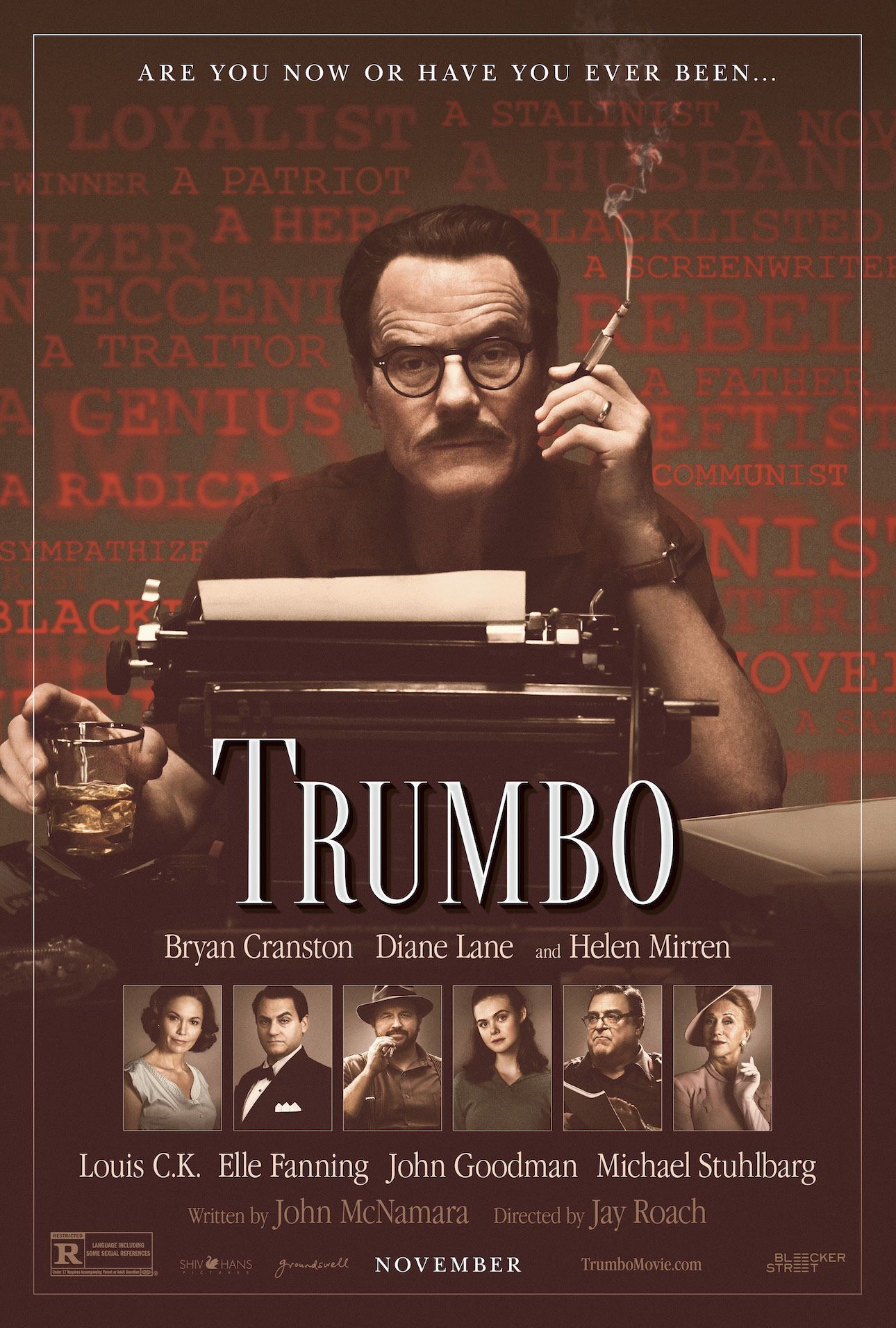The Big Picture
- Hollywood's Golden Age had a dark side, as blacklisting occurred in the middle of the era.
- Dalton Trumbo, a revered screenwriter during the Golden Age, fought political persecution and won an Oscar after being blacklisted.
- Bryan Cranston's portrayal of Trumbo in Trumbo brought the screenwriter's story to life and highlighted the era's absurdities.
Hollywood's Golden Age remains one steeped in legend. 1939 still holds the title of the film industry's greatest year, and countless classics and talent came from the age. However, the period's glitz and glamour often overshadow its darker side. While there's debate as to when the era ended exactly, an intense period of blacklisting and accusations occurred right in its middle.
Led by Senator Joseph McCarthy, the Red Scare began in the late 1940s and went on for a number of years. Over its course, actors, writers, directors and producers were questioned about the potential support of communism. While many complied throughout the hearings, some refused, or expressed outrage towards the efforts. Those who refused to cooperate or who were deemed guilty of being communists were blacklisted from working. Deemed a witch hunt (and inspiring playwright Arthur Miller to pen The Crucible), many industry professionals had their livelihoods destroyed by the false accusations. However, one screenwriter not only found a way around his exclusion from Hollywood, he also won an Oscar for his work.

Trumbo
Set against the backdrop of the 1940s Hollywood blacklist, a talented screenwriter fights against political persecution after being targeted for his political beliefs. With his career at stake, he uses his wit and writing skills to outsmart his oppressors and continue his work, even under a pseudonym.
- Release Date
- October 27, 2015
- Director
- Jay Roach
- Cast
- Bryan Cranston , Helen Mirren , John Goodman , Diane Lane , Michael Stuhlbarg , David James Elliott
- Runtime
- 124 Minutes
- Main Genre
- Drama
- Writers
- John McNamara , Bruce Cook
- Tagline
- Are you now or have you ever been...
Dalton Trumbo Was a Member of the Hollywood 10
Dalton Trumbo was one of Hollywood's most revered screenwriters at the time. He got his start at Warner Brothers as a script reader in 1934, before becoming a junior writer for the studio in 1935. The following year saw him awarded his first onscreen credit for screenwriting, which led to him becoming one of the most in demand writers over the next decade. However, as McCarthyism swept the industry, he and many other screenwriters found themselves under the scrutiny of the House Un-American Activities Committee. For Trumbo, the result was rejection, jail time, hiding, and finally, ultimate cinematic glory.
In addition to being a celebrated screen dramatist, Trumbo was also an acclaimed author. His 1939 novel, Johnny Got His Gun, was a massive hit, but with it, came misunderstandings and backlash. Trumbo began to receive letters from Nazi sympathizers who didn't understand the novel. Trumbo reported the letters to the FBI. Instead of investigating the senders, though, the FBI opened an investigation into Trumbo himself. Many in the film industry at the time were subject to such treatment, with some individuals, and even an entire movie, blacklisted. Trumbo was called to appear before the HUAC and was one of nine others who refused to cooperate with the House. Suddenly, the cutting edge writer who set the stage for some of the best scripts of all time was a member of what was infamously called the Hollywood 10.

The Youngest Oscar Winner Hadn’t Even Started Middle School Before Her Win
There’s no minimum age requirement to win film’s most famous award, so who are the youngest individuals to take home Oscars?History.com explains that the group became a notorious and controversial collection of mostly screenwriters. Consisting of Alvah Bessie, Herbert Biberman, Lester Cole, Edward Dmytryk, Ring Lardner Jr., John Howard Lawson, Albert Maltz, Samuel Ornitz, Robert Adrian Scott, and, of course, Trumbo. Each was slapped with a $1,000 fine and sentenced to a year of jail time. Trumbo, himself, began his sentence in 1950, but, even once that year was over, Trumbo, and many of the other members, remained banned from work. A loophole was discovered, however, and Trumbo began to write screenplays under pseudonyms. Under his false names, which included the likes of Ian McLellan Hunter and Robert Rich, he wrote some of the most beloved films of the era, including the Audrey Hepburn classic, Roman Holiday. But it was 1957's The Brave One that changed everything for Trumbo.
Trumbo Made His Comeback with 'The Brave One'
Written under his Robert Rich persona (according to Wisconsin Center for Film and Theater Research), The Brave One earned Trumbo an Oscar for Best Screenplay at the 29th Academy Awards. Due to his public exile, Trumbo was unable to accept the award himself. In an archived clip from the Academy, Vice President of the Screen Branch of the Writers Guild of America Jesse L. Lasky Jr. accepted the award on Trumbo's behalf. It marked a turning point for Trumbo, as the honor slowly began to allow the writer to return to the public eye. He was hired to adapt Exodus the following year. In 1959, actor Kirk Douglas personally championed bringing Trumbo on to write the acclaimed Stanley Kurbrick film, Spartacus.
Trumbo was able to continue working under his own name, writing films through the 1970s and even writing and directing an adaptation of his novel, Johnny Got His Gun, in 1973. That same year, he was diagnosed with lung cancer, and died of a heart attack in 1976. Decades later, the 1993 Academy Awards dedicated an Oscar to Trumbo’s work on Roman Holiday. The posthumous award was the first step on the road to his reputable redemption. But Hollywood wasn't done redeeming Trumbo's reputation just yet.
Bryan Cranston Received an Oscar Nomination for Playing Dalton Trumbo
Trumbo's story was adapted for the screen with 2015's Trumbo, which featured Bryan Cranston as the titular screenwriter. The movie brought a more nuanced and complex look to the celebrated dramatist's story. Cranston, who was nominated for an Oscar for his performance, masterfully brings to life Trumbo with careful complexity. He balances all aspects of the character and makes the audience root for Trumbo from the film's beginning.
Though he did not walk away with the Oscar for which he was nominated, he made a somewhat forgotten, but incredibly important, historical figure live again, and ensured his legacy would continue in the minds of those who saw the film. The Guardian praised both the film's accuracy and its portrayal of some of its more dramatic figures, such as Heda Hopper (Helen Mirren), while Time Magazine called the film "a Vital Lesson in Democracy." In the near decade since its release, the movie's continued to correct Trumbo's legacy, and has even helped realize how absurd many of its elements were.
The Red Scare affected many as it swept Hollywood. Dalton Trumbo may have been just one of the bunch when it came to film professionals affected by its blacklisting. However, his ingenuity and sheer talent helped him to not just overcome the forces that threatened to keep him down, but earn an Oscar, and, ultimately, get his career back. Despite the decade-long exile from Hollywood, his legacy lives on through his own work and a film that celebrates his story.
Trumbo is available to watch on Max in the U.S.

